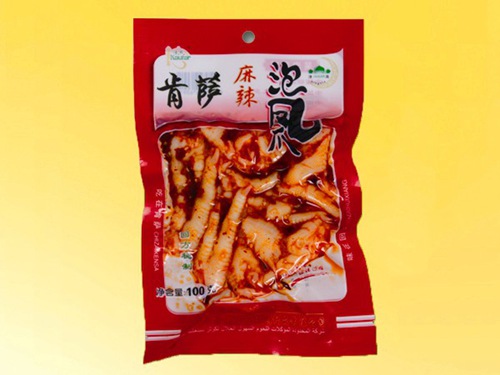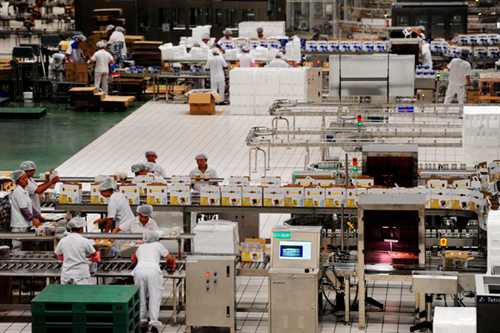|
 |
|
(FILE) |
The first clue came when we were on board the Air China flight to Yinchuan itself.
Midway into the nearly 120-minute flight, the steward handed us a couple of cakes. In addition to Chinese and English, the packages provided a description of the food in Arabic as well. And there was a new line: Halal food.
The Ningxia Hui Autonomous Region in northwest China is developing itself as a bridge to the Muslim world and halal food – food that is in compliance with Islamic teachings – is a major pillar of that initiative.
 |
|
China (Wuzhong) Halal Industrial Park (FILE) |
Wuzhong Town, home to ethnic Hui, China's largest Muslim group, is also the cradle of Ningxia's halal food and garments industry. Three years ago, the local government decided to give the Jinji Industrial Park in the town a makeover and it became the 63-square-km China (Wuzhong) Halal Industrial Park.
A cluster of over 40 industries, the park produces halal dairy, meat and frozen food products, an array of snacks, seasonings and beverages. The food industry is complemented by a garments industry.
The Ningxia Jinrui Halal Food Company in the park is a model business for several reasons. It was established in 1997 by Yang Jinglan who lost her right arm while working at a woolen mill in 1986. She overcame her mishap to become the largest manufacturer of halal frozen food and Director of the Ningxia Entrepreneurs' Association. Last year, the government recognized Yang as a "national self-improvement model."
Innovation is a salient feature of the park. It is amazing how it is developing new niche sectors. For example, it is seeking investors to establish a halal airline catering food production base. The base will have eight production lines that will churn out over 1 million ton of halal airline catering food. With China's trade with Arab and other Muslim countries growing and visitors flying in from the Middle East, Malaysia, Brunei and Indonesia in a steady trickle, more and more airlines are serving halal food on board. And the park is seeking to cash in on that.
Another niche area is developing products using local specialties like the wolfberry and purple mushroom. The wolfberry is the main ingredient in a wide range of products, from vinegars to fruit drinks to multivitamin capsules. Yet another innovation is the halal leisure food project manufacturing chocolates and cookies. Ningxia has cooperation agreements with Qatar, Saudi Arabia, Oman and Egypt.
The park had an overall industrial output worth 3.8 billion yuan ($60 million) in 2012. This year, the target is over 15 billion yuan ($2.4 billion). | 